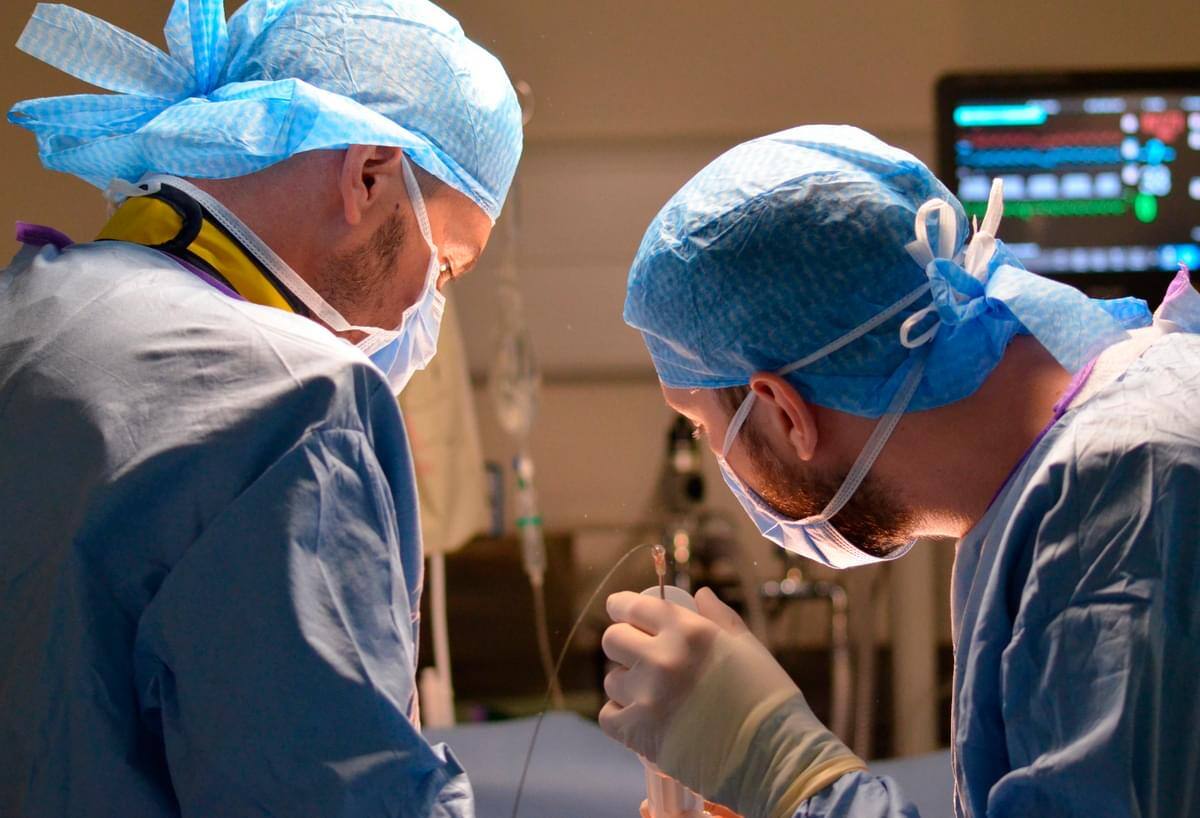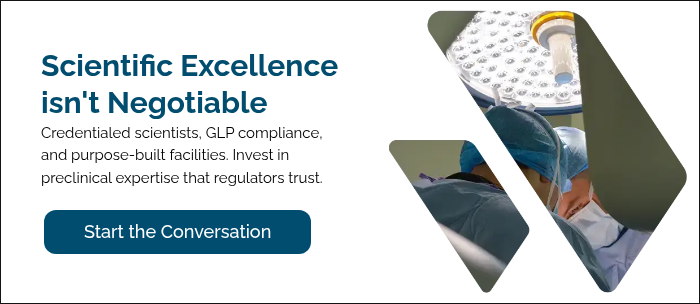2 min read
Identification, Engagement and Commitment of Key Players for a Successful Preclinical Study
Veranex : Sep 9, 2024 10:10:41 AM

Assembling a team for an efficient preclinical study
When it comes to kicking off your preclinical study, assembling the right team will help you anticipate challenges and implement solutions that will help your study progress efficiently, saving you time and resources. In this blog post, we lay out the primary roles you will interact with during this phase of your product’s development.
Sponsor
-
The medical product developer
-
Initiates and supports a non-clinical laboratory study and submits the study in support of an application for a research or marketing permit
-
Range from large, publicly traded companies to startups to individual innovators
Study Director/Principal Investigator/Program Manager
-
Scientists with proven capabilities of successfully coordinating and leading preclinical studies, often with significant experience in at least one or two therapeutic areas
-
Overall responsibility for the technical conduct of the study as well as for the interpretation, analysis, documentation, and reporting of results
-
Represents a single point of study control
-
Principal investigator plays a similar role, but for a contributing scientist report or non-GLP study
Quality Assurance
-
Trained professionals that independently monitor the execution of a preclinical GLP study
-
Assure compliance with the protocol and test facility SOPs
-
Responsible for monitoring the study to assure test facility management that the facilities, equipment, personnel, methods, practices, records, and controls are in compliance with regulations
Operator/Test Device Evaluator
- In-house veterinarian, a physician, or a third-party with experience performing this type of procedure.
- Physician is typically SME
- Working side-by-side with veterinarian is advisable
Veterinarian / Veterinary Personnel
- Demonstrates successful expertise
- Evaluates the health of and care for the animals
-
Ensures adherence to USDA, AAALAC, and animal welfare guidelines
Clinical Expert/Key Opinion Leader
- Highly recognized physicians or industry leaders
- Provide instant feedback and expert advice
-
Leverage to speed up product development and approval pathway
Contributing Scientists
Multiple members either from the sponsor’s team, the preclinical CRO’s team, or other facility or lab staff and/or independent subject matter experts. Includes engineers, chemists, imaging, histopathology, clinical pathology, etc.
Directly related: Four Advantages In-House Histopathology Labs Give Medical Device Innovators a Critical Edge
Consider typical challenges in outsourced histopathology: delays waiting for external lab availability, communication gaps leading to suboptimal tissue sampling and data loss, protocol amendments when pathology considerations weren't planned, and regulatory questions from unclear reports. Multiple regulatory interactions or repeating costly GLP studies can doom promising projects.
One way to avoid those risks often goes unrecognized: selecting in-house histopathology labs integrated within preclinical operations. Here we offer four distinct advantages for medical device innovators in selecting a preclinical service provider with an in-house histopathology lab. Read on.
Let's Meet the Challenges of Medical Device Innovation, Including Preclinical Testing, Together.
What preclinical challenges are you facing? We know medical device innovation is challenging at every level, in every phase. Veranex has end-to-end resources with expertise throughout the commercialization process from the earliest phases like market assessment, human factors and design through regulatory submission, quality control, manufacturing and market access. This ensures wherever you are, you don't have to stop work when "downstream" expertise is needed to inform the work being done today.
Our industry leading preclinical CRO services have supported over 100 regulatory submissions returned with no questions asked.
Related content
Common Costs in Preclinical Testing Programs
Five Questions to Ask When Evaluating a Preclinical CRO
Ten Things to Know Before You Start Your GLP Preclinical Study



